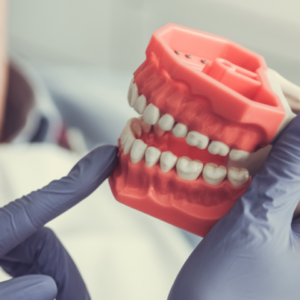In a world that often compartmentalizes physical health and mental well-being, it’s becoming increasingly clear that the mind and body are not separate entities but deeply interconnected aspects of our overall health. The intricate relationship between mental health and physical well-being has garnered significant attention in recent years, as research continues to highlight the profound impact that one has on the other. This blog post aims to delve into the nuances of the mind-body connection, exploring how our mental state influences our physical health and vice versa.
The Mind-Body Connection: A Holistic Perspective
The mind-body connection refers to the intricate interplay between our psychological experiences and our physiological responses. It’s important to note that the mind and body are not isolated entities; instead, they communicate and interact in ways that profoundly affect our overall health. This concept is rooted in ancient healing traditions such as Ayurveda and Traditional Chinese Medicine, which recognize that emotional well-being is integral to physical health.
Stress: The Bridge Between Mind and Body
One of the clearest illustrations of the mind-body connection is the impact of stress on both mental and physical health. When we experience stress, whether from external pressures or internal worries, our body responds by releasing stress hormones like cortisol. While this response is designed to be protective, chronic stress can lead to a range of health issues, from anxiety and depression to heart disease and weakened immune function.
The Gut-Brain Axis
The gut-brain axis is another remarkable example of how closely intertwined our mental and physical states are. The gut, often referred to as the “second brain,” is home to millions of neurons that communicate with the brain through the vagus nerve. This bidirectional communication influences not only digestion but also mood and emotional well-being. An imbalance in the gut microbiome has been linked to conditions like irritable bowel syndrome (IBS), as well as mood disorders like depression and anxiety.
Psychosomatic Disorders
Psychosomatic disorders further underscore the mind-body connection. These are physical ailments that have a significant emotional or psychological component. Conditions like tension headaches, fibromyalgia, and even some cases of chronic pain are believed to be influenced by emotional distress and mental health factors. This highlights how unresolved emotional issues can manifest as physical symptoms, underscoring the intricate connection between the two.
Positive Effects: The Placebo and Mindfulness
The mind-body connection isn’t solely about negative impacts. The placebo effect is a testament to the power of the mind in influencing physical health. Believing that a treatment is effective can lead to actual physiological improvements. Similarly, mindfulness and meditation practices showcase the potential for positive influence on both mental and physical well-being. Studies have shown that mindfulness can reduce stress, improve immune function, and even lower blood pressure.

Breaking Down Barriers: Integrated Healthcare
To fully harness the potential of the mind-body connection, it’s essential to break down the barriers that separate mental health care from physical health care. Integrated healthcare, which combines both aspects, acknowledges that addressing only one side of the equation might not lead to holistic healing. For instance, a patient receiving treatment for diabetes should also be screened for depression, as the two conditions often intersect.
Cultivating a Healthy Mind-Body Connection
- Prioritize Self-Care: Engaging in activities that bring joy, practicing mindfulness, and getting adequate sleep are all essential for nurturing a healthy mind-body connection.
- Stay Active: Regular physical activity has been shown to boost mood and reduce the risk of mental health disorders. It’s a two-way street; a healthy mind encourages physical activity, and vice versa.
- Seek Professional Help: If you’re struggling with mental health issues, seeking the help of a mental health professional is crucial. Remember that taking care of your mind also supports your body’s well-being.
- Nourish Your Body: A balanced diet rich in nutrients not only supports physical health but also provides the building blocks for optimal brain function.
Conclusion
Understanding the mind-body connection is a pivotal step toward achieving holistic well-being. Recognizing that mental health and physical health are deeply intertwined allows us to adopt a more comprehensive approach to self-care. By nurturing our mental health, we can positively influence our physical well-being, and by prioritizing our physical health, we can create a supportive environment for our mental state. As we continue to explore the intricacies of this connection, a new era of integrated healthcare emerges—one that acknowledges the undeniable link between the mind and the body. Visit SpaceCoastDaily if you need more information or have any questions about the aspects of our overall health.





